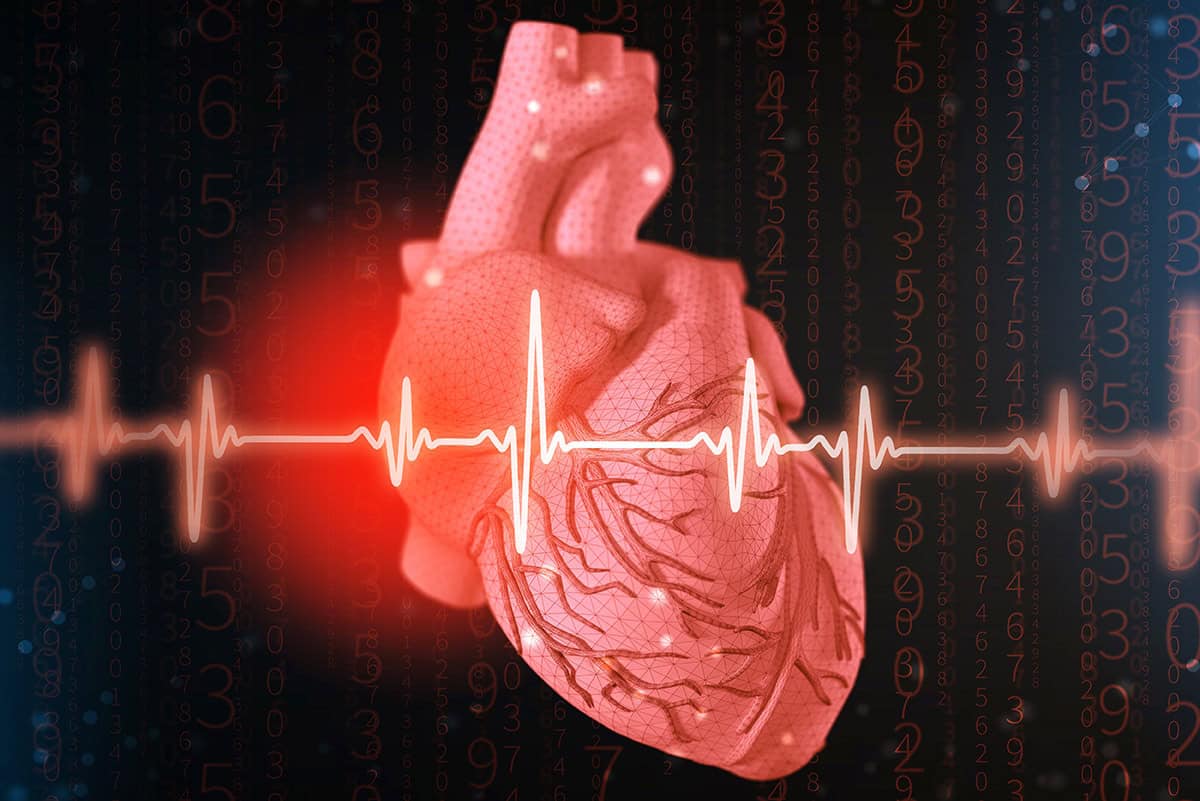Science
New AI Model Outperforms Cardiologists in Heart Disease Detection

A new deep-learning model named EchoNext is demonstrating significant potential in identifying patients at high risk of structural heart disease (SHD), outperforming traditional diagnostics and even experienced cardiologists. Developed by researchers at Columbia University and NewYork-Presbyterian Hospital, EchoNext analyzes electrocardiogram (ECG) traces to detect conditions that often go undiagnosed, such as heart failure and valvular heart disease, which collectively affect millions globally.
SHD is currently underdiagnosed, largely due to the complexity and cost of echocardiograms—the standard diagnostic test—which limits their routine use. As a result, many patients receive late diagnoses, leading to unnecessary deaths and increased burden on healthcare systems. EchoNext offers a solution by pinpointing which patients should undergo further echocardiogram testing based on affordable and widely collected ECG data.
How EchoNext Works
EchoNext operates as a convolutional neural network, utilizing mathematical operations to analyze segments of ECG data. It assesses each segment, assigning numerical values that indicate the likelihood of SHD. The model has been trained on more than 1.2 million ECG traces from approximately 230,000 patients, allowing it to refine its predictive accuracy through retrospective data evaluation.
In a study published in the journal Nature, researchers tested EchoNext on ECG data from 85,000 patients. The model identified 9% of these patients as being at high risk for undiagnosed SHD, with 55% subsequently receiving their first echocardiogram. Alarmingly, nearly 75% of those tested received a positive diagnosis, which is significantly higher than the usual positivity rate for first-time echocardiograms.
In head-to-head testing, EchoNext surpassed the performance of 13 cardiologists, correctly identifying 77% of structural heart issues from a pool of 3,200 ECGs. In contrast, the cardiologists achieved an accuracy rate of just 64%, a statistic that surprised even the researchers involved in the study.
The Vision Behind EchoNext
The initiative to create EchoNext was led by Pierre Elias, assistant professor at Columbia University Vagelos College of Physicians and Surgeons and medical director for artificial intelligence at NewYork-Presbyterian. Elias was motivated to develop the model after a personal experience where he could not save a patient who had been misdiagnosed with critical valvular heart disease.
Elias stated, “You can’t take care of the patient you don’t know about. So we said: is there a way that we can do a better job with diagnoses?” This reflects the core aim of EchoNext: to enhance diagnostic accuracy and, ultimately, patient outcomes.
Currently, EchoNext is undergoing clinical trials across eight hospital emergency departments, expected to conclude in 2026. Elias emphasized the importance of generating robust clinical evidence to demonstrate the model’s safety and efficacy, aiming for it to be widely adopted in clinical practice.
Despite being in the trial phase, EchoNext has already received designation as a breakthrough technology by the US Food and Drug Administration (FDA). Elias expressed optimism about the project’s future, stating, “Our goal is for this to impact as many patients as possible over the next 12 months.” He also noted that since EchoNext successfully identifies 13 types of heart disease, the technology could have broader applications in other areas of healthcare.
The potential of EchoNext exemplifies how advancements in artificial intelligence and medical physics can significantly enhance cardiology practices. As the project progresses, it may reshape how healthcare providers approach the detection and treatment of heart disease, ultimately saving lives and improving patient quality of life.
-

 World2 days ago
World2 days agoCoronation Street’s Shocking Murder Twist Reveals Family Secrets
-

 Entertainment4 months ago
Entertainment4 months agoKate Garraway Sells £2 Million Home Amid Financial Struggles
-

 Entertainment3 months ago
Entertainment3 months agoAnn Ming Reflects on ITV’s ‘I Fought the Law’ Drama
-

 Health3 months ago
Health3 months agoKatie Price Faces New Health Concerns After Cancer Symptoms Resurface
-

 Entertainment3 weeks ago
Entertainment3 weeks agoCoronation Street Fans React as Todd Faces Heartbreaking Choice
-

 World3 weeks ago
World3 weeks agoBailey Announces Heartbreaking Split from Rebecca After Reunion
-

 World5 days ago
World5 days agoKevin Sinfield Exceeds Fundraising Goal Ahead of Final Marathons
-

 Entertainment3 months ago
Entertainment3 months agoCoronation Street’s Carl Webster Faces Trouble with New Affairs
-

 Entertainment5 days ago
Entertainment5 days agoTwo Stars Evicted from I’m A Celebrity Just Days Before Finale
-

 Entertainment3 months ago
Entertainment3 months agoWhere is Tinder Swindler Simon Leviev? Latest Updates Revealed
-

 Entertainment4 months ago
Entertainment4 months agoMarkiplier Addresses AI Controversy During Livestream Response
-

 Science2 months ago
Science2 months agoBrian Cox Addresses Claims of Alien Probe in 3I/ATLAS Discovery










